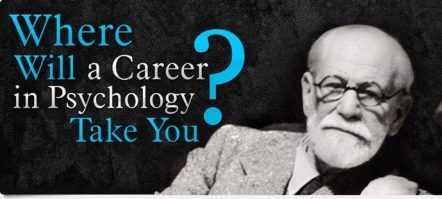Why take up a bachelors in psychology degree? Should you go for a BA or a BS? Can you work directly in this field with only a major?
Let’s start by correcting some misconceptions. First, you are not qualified to be a psychologist with an undergraduate degree in psychology. Technically, you need to have completed a doctorate program and passed the licensure exam to use the title psychologist. You can more directly apply your knowledge in psychology with a masters degree, but even that’s on a limited scope, too.
Second, at the bachelors level, you are given an introduction to psychology as a science. You learn about the human mind and behavior at this level, but cannot use this knowledge professionally. With a bachelor of arts, you are completing a liberal arts degree to give you a well-rounded education that will prepare you for a variety of careers, many of which are not related to psychology. A bachelor of science is more in preparation for specialized fields later. You can use these as preparatory course for medicine and law.
And third, only about 25 percent of psychology majors actually pursue graduate studies to become professionals in this field. Those who do enter graduate school will more likely gain experience first in a related field before enrolling for a terminal masters program with a specialization, or go on to complete a doctorate, which will take between five to seven years to earn the title psychologist.
Differing Coursework
Most with a BA in psychology end up in research or business-related careers. Aside from learning about human behavior, cognition and emotion, you would also have harnessed your skills in communication — both verbal and written – and organizational behavior. While you can end up in social work, many find their niche in the area of human resources, marketing, business management and sales.
Expect your coursework under a BA program to include developmental psychology, social psychology, physiological psychology, psychology of personality, organizational behavior, research methods and statistics. If you’re leaning towards a legal career, this is more suited for you.
On the other hand, if you’re thinking of higher sciences in the future, then a BS program will be more beneficial. Your courses here will include child development, environmental stress, comparative psychology, principles of behavioral analysis, loss and trauma and psychopharmacology, among others.
Before proceeding to a masters in psychology program, you will need to get experience and will have invaluable training when you apply for positions assisting a licensed psychologist to get the exposure you need.
The minimum bachelors in psychology requirements are a high school diploma or its GED equivalent. Sometimes, they do have an age requirement between 21 to 24 years old. Provided the schools or programs are accredited, you can also opt for a bachelors in psychology online program to give you the flexibility in earning your degree.
What The Degree Is Good For
Aside from the scientific knowledge learned during the course of your studies, you should have acquired valuable skills that will get you in careers that have nothing to do with your degree. Completion of a bachelors in psychology degree means you should have gained good communication (verbal one-on-one and small group) and writing skills, developed critical thinking skills and the ability to understand individual human behavior and organizational behavior. With these skills in your arsenal, you can find many opportunities that need not be directly related to psychology.
So when asked what can you do with a bachelors in psychology, the answer is: there are a lot of opportunities open for you.
If you’re aiming to become a certified psychologist or therapist in the future, you really will be building a good, solid foundation in the discipline by taking up a bachelors in psychology program.
There are several entry-level opportunities that you can look into to supplement your studies and prepare you for specialization, but salary-wise they won’t pay as much. Still, what you gain is priceless experience that will give you a better understanding if this is what you want to do for the long term, before buckling down to graduate studies.
Work as a career counselor, a substance abuse counselor, a probation or parole officer, day care staff or teacher, social service specialist or as psychiatric technician. You will have a better appreciation of your Masters or doctorate programs when you can relate how the theories, concepts and principles are applied in real life situations.
One thing about a bachelors in psychology degree that can be helpful is the well-rounded preparation it will provide you with even before you can truly decide what you want to do with the rest of your life.
Below find more interesting articles about the different programs, schools, rankings and salaries.


